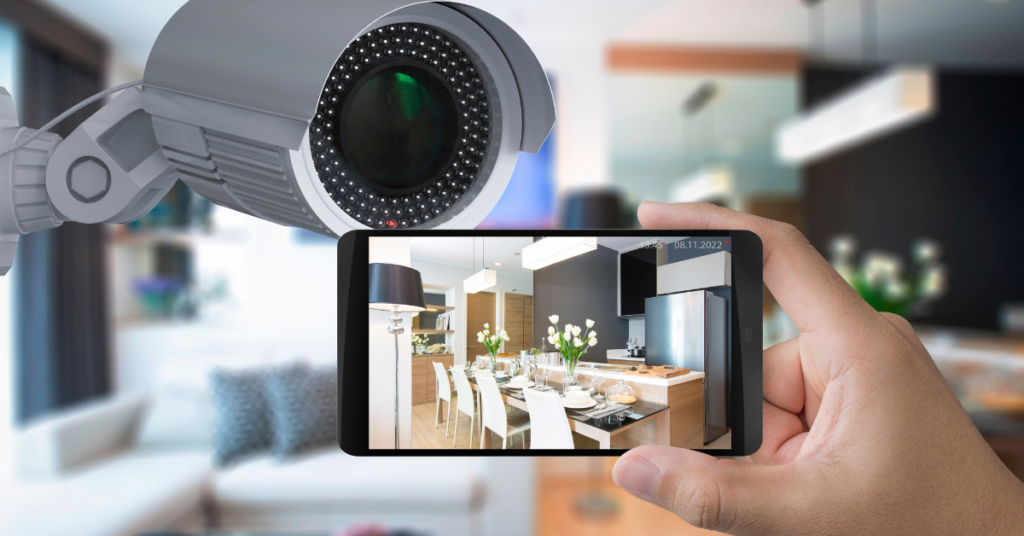Avoiding Tenant Complaints: Your Guide to Happy Renters
Reading Time: 5 minutesRunning a rental property shouldn’t give you headaches. Yet many landlords find themselves dealing with endless tenant complaints and midnight emergency calls. Fortunately, most common problems can be prevented with the right approach. Why Tenants Complain (And Why You Should Care) Tenants complain for various reasons, and as a property owner, it’s…

Running a rental property shouldn’t give you headaches. Yet many landlords find themselves dealing with endless tenant complaints and midnight emergency calls.
Fortunately, most common problems can be prevented with the right approach.
Table of Contents
Why Tenants Complain (And Why You Should Care)

Tenants complain for various reasons, and as a property owner, it’s crucial to understand these motivations and take them seriously. After all, unhappy tenants cause more than just stress, they can hurt your bottom line through constant turnover, property damage, and bad reviews.
When tenants feel ignored or frustrated, they’re more likely to move out early or stop taking care of your property. This costs you money and time.
The Big Problems And How to Fix Them
Maintenance Headaches
Nothing frustrates tenants more than broken appliances or leaky faucets that don’t get fixed. They especially hate it when they have to go through a long set of steps just to have their request heard.
To avoid maintenance headaches, make sure to set up regular check-ups of your property, just like you’d get a regular check-up at the doctor. This helps catch small problems before they become expensive emergencies.
Create a schedule to inspect:
- Heating and cooling systems twice a year
- Water heaters and plumbing every six months
- Appliances and fixtures quarterly
- Roof and gutters seasonally
Poor Communication
When tenants feel ignored, small issues turn into big complaints. Think about it – wouldn’t you be frustrated if your landlord never answered your calls? Here’s how to keep lines open:
- Answer messages within 24 hours, even if just to say “I got your message”
- Be clear about when and how you’ll fix problems
- Keep tenants in the loop about any changes or repairs
- Use simple language in all communications
- Send friendly reminders about important dates or maintenance
Making Life Easier with Technology
You don’t need to be tech-savvy to use helpful tools. Simple systems can save you time and keep tenants happy:
- Use a property management app to track maintenance requests
- Set up online rent payments
- Create a shared calendar for inspections and repairs
- Keep digital records of all communications
Building Better Tenant Relationships

Happy tenants usually equal profitable properties. Here’s how to build good relationships:
1. Show You Care
Being a good landlord starts with showing your tenants that you care about them. Here are some ways to do that:
- When new tenants move in, greet them warmly and make them feel at home.
- Make an effort to learn and use your tenants’ names. It shows that you value them as individuals.
- Pay attention when tenants talk to you about issues. Show that their worries matter to you.
- When tenants ask for something reasonable, try to take care of it as soon as you can.
- Show appreciation when tenants treat your property well. A simple “thank you” can go a long way.
2. Respect Their Space
Respecting your tenants’ privacy and personal space is very important for a good landlord-tenant relationship. After all, nobody likes a nosy neighbor, much less a nosy landlord.
- Always give proper notice before visiting. Let tenants know ahead of time when you need to come by, as this shows you respect their home.
- Don’t share your tenants’ personal details with others. Protect their privacy.
- Never show up unannounced. Avoid surprising your tenants with unexpected visits. It can make them feel uncomfortable.
- Be mindful of when tenants might be sleeping or relaxing. Avoid making noise or scheduling work during these times.
Simple Steps to Start Today

Whether you’re managing properties on your own or partnering with a professional service, there are several straightforward actions you can take right now to improve your property management:
1. Conduct a thorough property walkthrough
Take the time to carefully inspect each of your properties. As you walk through, create a detailed list of any potential issues you notice. This could include things like peeling paint, loose doorknobs, leaky faucets, or worn carpeting.
Don’t overlook small details – they can often lead to bigger problems if left unaddressed. This proactive approach will help you catch and fix minor issues before they become major headaches.
2. Develop a comprehensive maintenance schedule
Based on your walkthrough findings, create a simple yet effective maintenance schedule. This should include routine tasks like HVAC filter changes, gutter cleaning, and lawn care, as well as less frequent but important jobs like exterior painting or appliance servicing. Having a schedule ensures that nothing falls through the cracks and helps prevent costly emergency repairs down the line.
3. Update and organize tenant information
Take some time to review and update your tenant contact information. Make sure you have current phone numbers, email addresses, and emergency contacts for all your tenants. Consider creating a digital database for easy access and updates. This information is important for quick communication during emergencies or for routine notices.
4. Verify safety equipment functionality
Go through each property and check that all safety equipment is in working order. This includes smoke detectors, carbon monoxide detectors, fire extinguishers, and any security systems. Test each device, replace batteries if needed, and note any equipment that needs to be replaced. Safety should always be a top priority in property management.
5. Review and update emergency procedures
Take a close look at your current emergency procedures. Are they clear and comprehensive? Do they cover various scenarios like natural disasters, fires, or major maintenance issues? Update these procedures as needed and make sure they’re easily accessible to both you and your tenants. Consider creating an emergency contact list that includes local authorities, utility companies, and trusted contractors.
Making It Work Long-Term
Good property management isn’t complicated, but it does take commitment. Focus on:
- Regular maintenance instead of emergency repairs
- Clear, friendly communication
- Quick response to problems
- Keeping good records
- Building positive relationships
Remember, happy tenants usually stay longer, take better care of your property, and recommend you to others. This means more profit and less stress for you.
How Green Ocean Property Management Helps
Don’t wait for problems to pile up. Green Ocean Property Management can help you create a maintenance plan that works. We’ll take care of the details so you can enjoy the benefits of property ownership without the headaches. We handle:
- All maintenance coordination
- 24/7 emergency response
- Regular inspections
- Tenant communications
- Rent collection
- Property marketing
Our team knows how to prevent problems before they start. We use proven systems to keep your properties running smoothly and your tenants happy.
Good property management isn’t about solving problems – it’s about preventing them in the first place. Contact Green Ocean Property Management today to learn how we can make your property management easier and more profitable.
Let’s work together to keep your properties running smoothly and your tenants happy.
Condo Landlord Insurance Facts
Reading Time: 3 minutes Every investor should have a Dwelling Fire Policy, also known as the landlord’s policy. In this article, we are going to talk about the different types of insurance for condos and the different types of transfer for every type of building as well – The Condo Landlord Insurance Facts You Should Know. Those policies…
Enhancing Property Security with Wireless Cameras
Reading Time: 3 minutesIn today’s fast-paced world, ensuring the safety and security of your property has become more important than ever. Wireless cameras have emerged as a proactive solution for property owners, offering peace of mind and enhanced surveillance capabilities. At Green Ocean Property Management, we understand the value of advanced security measures, and in this article, we…
How Do We Make Sure that You Work with Reliable Vendors
Reading Time: 2 minutes One of the most valuable things that we have access to as a property management company is reliable vendors. Having reliable vendors did not happen overnight. We, just like every other landlord had to go through tons and tons of different vendors that gave us issues. Vendors not showing up on time, trying…








